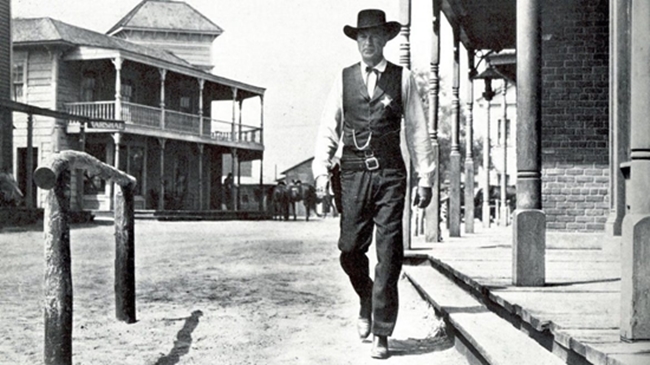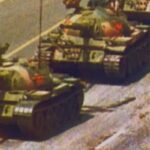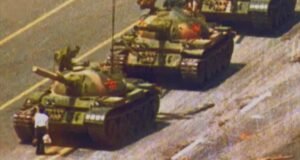
by Robert Bidinotto
Sometimes, people who can see the evil nature of the Chinese government and its policies are still reluctant to oppose it—and even become actively hostile to consistent opponents of the regime. Why? A bestselling novelist suggests one major possibility.
When the chips are down, courage is the virtue that makes all other virtues possible. It is the enabling virtue.
Courage is the only virtue that directly pertains to the need to act properly and steadfastly in the face of great obstacles, threats, and fears. Other virtues can be practiced in nonthreatening circumstances, when little is at risk. But the virtue of courage alone applies specifically to circumstances that are difficult and frightening.
Courage is the virtue that defines, and fully measures, conduct that we regard as heroic. A hero without courage is a contradiction in terms.
His opposite is the coward, who is also often his enemy.
Almost invariably, individuals who take an uncompromisingly courageous stand against some menacing evil are vilified and eventually betrayed by others who are threatened by the same evil—but who are too cowardly to take the same stand. The reason is that by his example, the courageous person forces the coward to face the uncomfortable fact of his own inexcusable cowardice.
The coward’s way of dealing with an evil and threatening adversary usually proceeds in five stages.
The five stages of cowardice
First, the coward evades the very existence of the evil adversary. If he closes his eyes to evil, maybe it will go away.
Second, when the menace becomes unavoidably clear and complete evasion untenable, the coward tries to convince himself that the adversary isn’t really all that evil or all that dangerous.
Third, when the adversary begins to make direct threats or take ominous actions, the coward launches a desperate campaign of appeasement—of preemptive capitulation—in hopes of forestalling a direct confrontation with an enemy that the coward knows he is too afraid to face.
Of course, this appeasement only empowers and emboldens the aggressor.
Fourth, when the inevitable confrontation finally takes place, the coward retreats or, if this is impossible, meekly surrenders.
Fifth, the coward rationalizes his capitulation.
He rationalizes his surrender as a matter of alleged practicality; or, concocting tortuous ideological excuses, he struggles to convince himself of the wisdom and even the moral righteousness of his surrender. Having sold his soul, he now obsequiously works to fit himself into the new reign of terror imposed by the evil aggressor. Resistance, as he feels, being futile, he strives to be assimilated.
At every stage of the coward’s long march to complete self-surrender, the hero’s courageous unwillingness to appease the looming evil adversary becomes more and more intolerable. By standing up to evil, the courageous person, the person of moral integrity, becomes a searing reproach—an inescapable reminder of the coward’s spineless lack of integrity and self-respect.
The hero needn’t utter a word of criticism: his example alone cuts through all of the coward’s excuses and rationalizations. The hero is someone who has refused to sell his soul. His mere presence, then, is a constant irritant, a grating reminder that the coward has betrayed his own soul…a self-realization that can become unendurable. After all, everyone needs to feel good about himself: self-esteem, including self-respect, is essential to a happy, flourishing life. But if there’s no factual basis for self-respect—if a person has engaged in a wholesale course of cowardly self-betrayal—he must try to fake self-respect instead.
So when the example of the hero threatens to shatter the coward’s pretense of self-esteem, he often turns against the hero. Sometimes betraying him. Sometimes even trying to destroy him.
The Zinnemann Vector
Two iconic films—both directed by Fred Zinnemann—dramatize the process of moral collapse I have described: “High Noon” (shown above) and “A Man for All Seasons.”
In each, scary bullies are threatening a community; its members are terrified by the looming prospect of a deadly confrontation; and, in response, they begin to preemptively capitulate in order to appease the bullies.
But then a solitary man of courage stands up and defies the bullies. He seeks allies and support from his friends and neighbors—only to find that almost all are cowards. They offer endless excuses and rationalizations for their cowardice, and soon enough they turn against him, becoming angrier at the hero than they are at the bullies. By taking an uncompromising stand against evil, he has become a model of courage and a reproachful reminder of their own cowardly self-betrayal.
These films enact a morality play that is on view everywhere in real life: the betrayal of courageous heroes by shape-shifting cowards who once pretended to be friends and allies. □
Adapted with permission from online commentaries by bestselling thriller novelist Robert Bidinotto. To learn more about the author and his work, visit Bidinotto.com.











